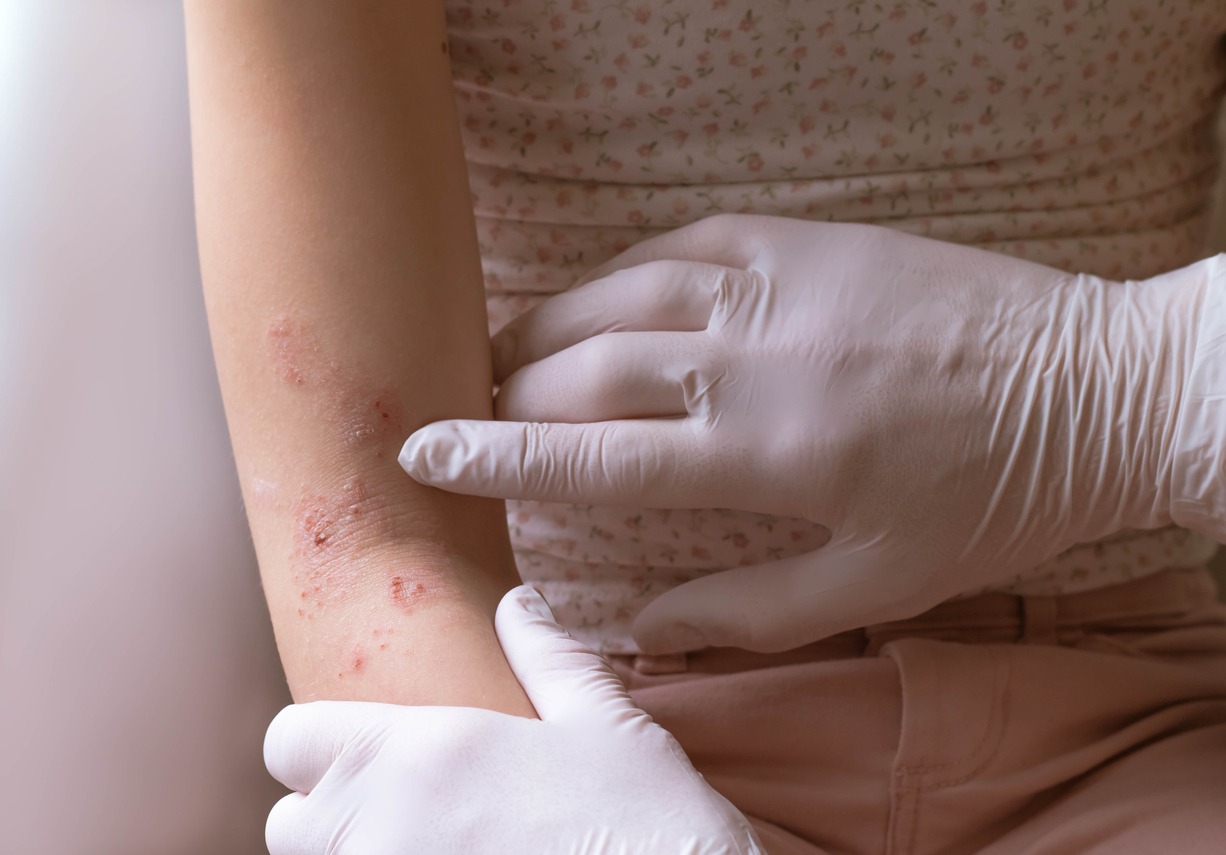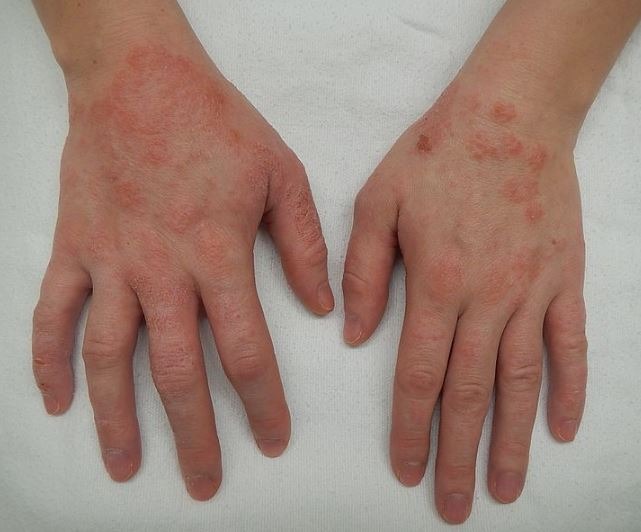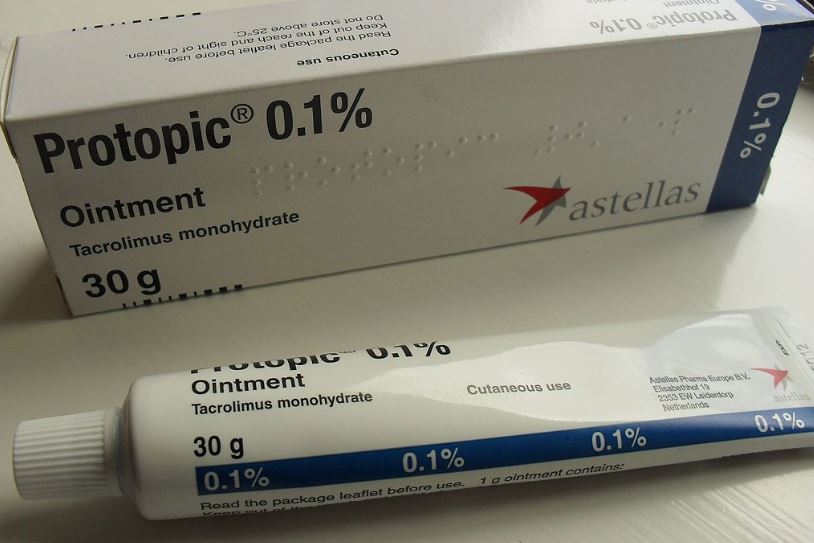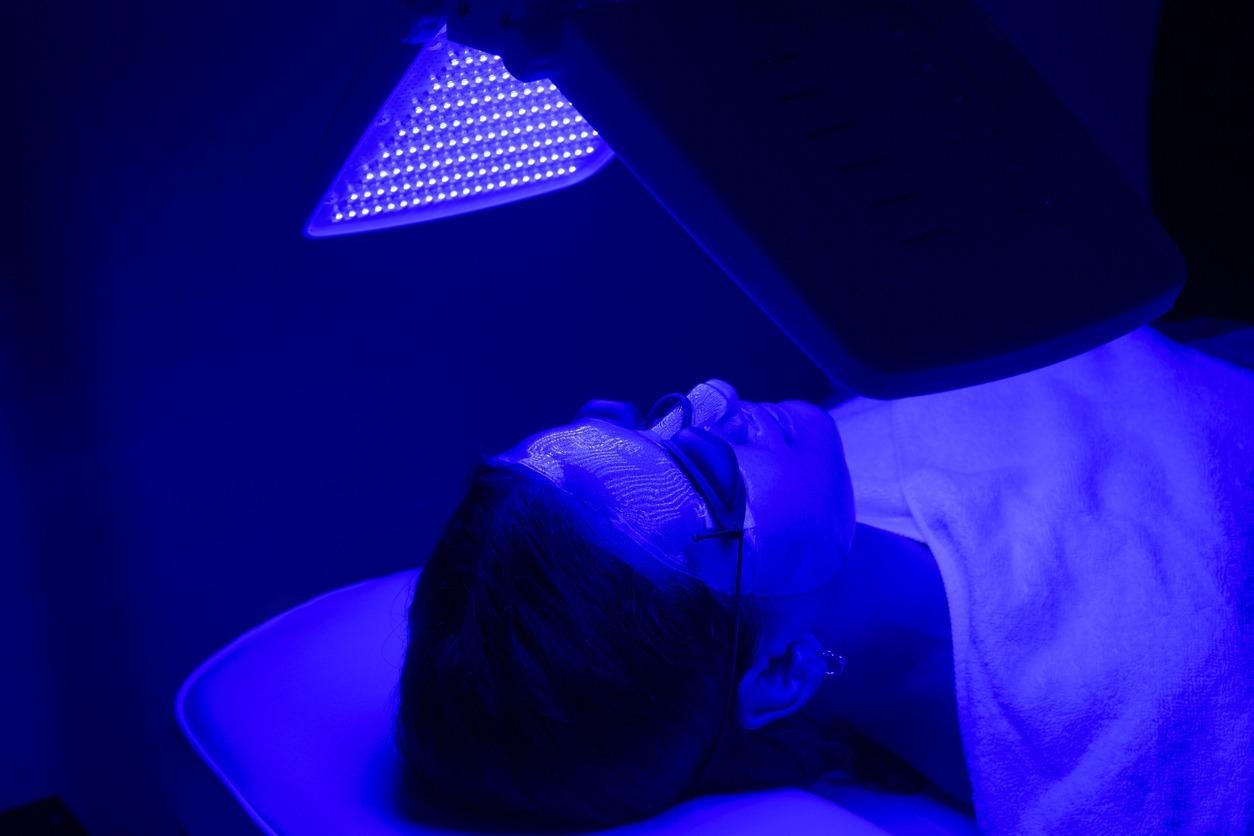Eczema or atopic dermatitis may be present if your skin is itchy, dry, and red. It’s a common, non-contagious skin condition that can be frustrating, whether you have it daily or only a few times a year.
Its symptoms frequently start appearing in children under the age of five, and they continue to flare up and recede through most of adolescence and adulthood. Eczema has no cure, though its symptoms can usually be controlled or alleviated.
As many as 15% to 20% of the population suffers from eczema or another type of dermatitis at some time in their lives, but there are effective treatments available. Continue reading to learn more about this skin condition and how to treat it.
What Is Eczema?
Eczema (atopic dermatitis) is a skin condition in which your skin becomes dry, red, itchy, and bumpy. It is one of several types of dermatitis. Eczema impairs the function of the skin’s barrier (your skin’s “glue”), and because of the loss of barrier function, your skin becomes more sensitive and prone to infection and dryness.
Eczema is not harmful to your health. It does not imply that your skin is infected, dirty, or contagious. There are treatments available to help you manage your symptoms.
How Common Is Eczema?
Around 15 million Americans suffer from eczema. This skin condition is common in infants, with 10% to 20% developing it. However, nearly half of those who develop the condition outgrow it or see a noticeable difference as they get older.
Eczema affects both men and women equally and is more prevalent in people with a family or personal history of environmental allergies, asthma, and/or food allergies.
Eczema Treatment Options
The best eczema treatment for you is determined by your age, medical history, the severity of your symptoms, and other factors. To get the best results, you probably should use a combination of remedies. And there are some things you can do on your own to make your skin look healthy and clear.
Here’s a comprehensive guide to eczema treatments.
Medications
When used as directed, eczema medications can relieve symptoms and aid skin healing. However, the treatments may not have similar effects on everyone. As a result, you and your physician may need to try a few different options to see what works.
When medications fail to work as well as they used to, treatment plans may need to be adjusted.
Corticosteroid Creams, Solutions, Foams, Gels, and Ointments
These hydrocortisone-based treatments can quickly reduce inflammation and alleviate itching. They are available in various strengths, ranging from mild over-the-counter (OTC) remedies to stronger prescription medications.
When treating mild eczema, doctors frequently recommend over-the-counter hydrocortisone. Depending on the locus and severity of your rash, you may require different strengths of these steroids. It’s always worth getting an eczema cream you can trust.
A doctor, for example, may prescribe a stronger one for thick, scaly skin. These medications have very few side effects when used as directed, such as stretch marks and thinning skin.
PDE4 Inhibitor
Crisaborole (Eucrisa), a prescription nonsteroidal anti-inflammatory, can treat mild to moderate eczema. A twice-daily application for patients two and older has been shown to reduce inflammation and help the skin look more normal.
Barrier Repair Moisturizers
These are available both by prescription and over-the-counter. They aid in the retention of moisture in the skin, repair damage, and the relief of redness, dryness, and itching. Some products may contain irritating fragrances or other ingredients; therefore, consult your pharmacist or doctor to determine which ones you should try or avoid.
Calcineurin Inhibitors
Some people benefit from the topical medications tacrolimus and pimecrolimus, which treat moderate-to-severe eczema. They reduce inflammation but are not steroids. If over-the-counter steroids do not work or cause problems, doctors frequently recommend these.
Corticosteroid Pills, Shots, or Liquids
These potent medications help alleviate the symptoms of severe or difficult-to-treat eczema. Because of the risk of side effects like bone loss and skin damage, you should only take them for a short time.
Systemic Immunomodulators
Immunosuppressive medications, such as methotrexate, cyclosporine, and mycophenolate mofetil, help keep the body’s defenses from overreacting. They can be taken as pills, a shot, or as liquids. When other treatments have failed, they can help individuals with moderate-to-severe eczema.
They alleviate itching, allowing you to scratch less and give your skin time to heal. Kidney problems and high blood pressure are serious side effects, and some of them are not recommended for children. To reduce the risk of these side effects, you should only take these medications for a short time.
Biologics
These are pharmaceuticals made from proteins derived from cells or living tissues. They lower your immune system’s activity, reducing eczema symptoms and inflammation. They are administered via a needle in a vein or a shot under your skin.
Antibiotics
Scratching causes damage to your skin, allowing bacteria to enter and cause an infection. These medications are used to treat bacterial skin infections.
Antihistamines
When taken at night, these medications relieve itching and make you sleep.
Phototherapy
You can use UV light to treat moderate-to-severe eczema. UV rays aid in preventing the immune system from flying off the handle. However, too much of it can age your skin and increase your risk of skin cancer, so doctors utilize the lowest possible dose and closely monitor your skin when you receive this treatment.
At-Home Skin Care
When you maintain healthy skin, you can avoid dryness, redness, and itching and possibly reduce the need for medication. It also feels good to pamper yourself. Consider the following suggestions:
Bathe only in warm water: Hot water dries the skin out. Instead of soap, use a gentle cleanser. Washcloths and body scrubbers, which can be irritating, should be avoided. Instead of rubbing, pat dry using a soft towel, leaving your skin damp.
Apply moisturizers daily: Do it right after washing your hands or taking a bath. Select fragrance-free moisturizers that will not irritate your skin. Use a thicker ointment or skin cream with more oil at night, and wear cotton socks or gloves to lock in moisture. The latter can also stop you from scratching yourself awake at night.
Avoid excessive hand washing and bathing: This will cause your skin to dry out. Avoid using alcohol-based hand cleaners as well.
Limit your exposure to skin irritants: Household cleaners, perfumed soaps, laundry detergents, cosmetics, bubble baths, and various other products can aggravate eczema. Discover what irritates your skin and how to avoid it.
Select cotton clothes that fit well: Wool and synthetic fibers can be irritating. Also, wash new clothes before sporting them for the first time. Use fragrance-free laundry detergent and thoroughly rinse your clothes.
Prevent overheating: Itching and scratching can occur when you are hot and sweaty. After a workout, immediately rinse off in a warm shower.
Understand Your Triggers
Pollen, dust mites, animal dander, and mold are common allergens for people with eczema.
Reduce Stress
It can be grueling to find time to relax, but doing so will save you from symptom flare-ups.
If you’re still not satisfied with the listed treatments above, here are alternative remedies that might help with eczema!




